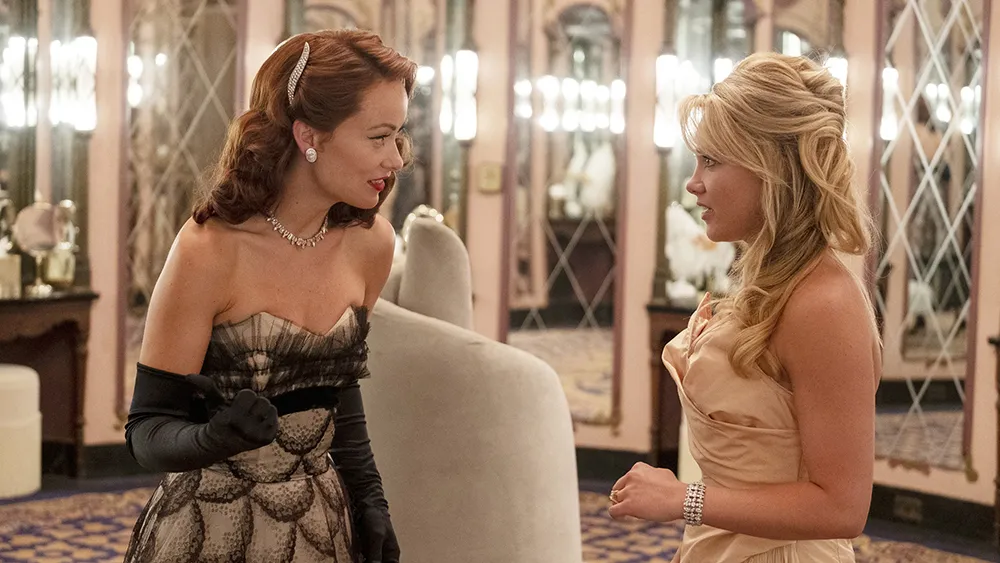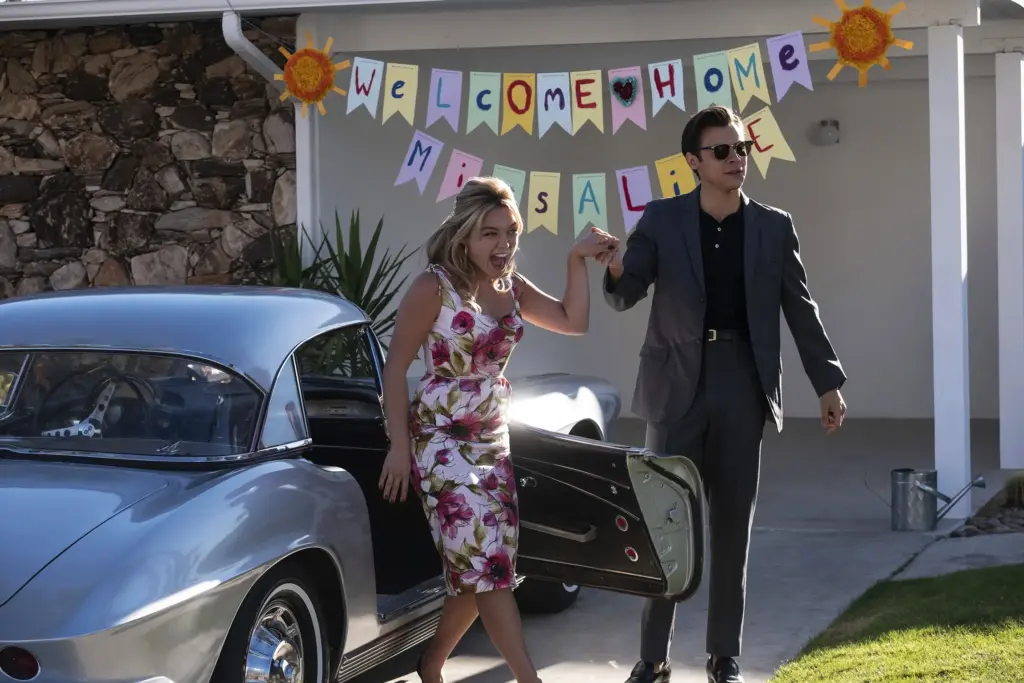‘Don’t Worry Darling’: Olivia Wilde’s Dive into 1950s Utopia

In her much-anticipated follow-up to the boldly unconventional directorial debut, Booksmart, Olivia Wilde brings us ‘Don’t Worry Darling’, a visual feast that is as captivating as it is mysterious. The film’s aesthetic, with its sun-soaked hues and a dreamlike wardrobe straight from the 1950s, creates a world that seems too perfect to be real – a deliberate choice by Wilde, who skillfully plays with the veneer of idyllic American life.
Set against the backdrop of Victory, a utopian desert town, the narrative revolves around Alice (Florence Pugh) and her husband, Jack (Harry Styles). The seemingly endless cycle of martinis and potluck parties paints a picture of perfection, but as Alice begins to question, the flawless facade starts to crack. The charismatic founder of the community, Frank (Chris Pine), adds an intriguing layer to the storyline, offering a blend of thriller, feminism, and a subtle touch of sci-fi with a mysterious laboratory in the mix.

Wilde’s mastery of style is evident, with a colour palette that mirrors the optimism of the era. However, the film’s Achilles heel lies in its overreliance on surface glamour. The narrative, while promising, suffers from inconsistencies that strain its cohesion. Wilde’s attempt to distract from these shortcomings with a glossy exterior leaves the audience wanting more substance.
In the lead roles, Florence Pugh shines, delivering a phenomenal performance that elevates the film. Her portrayal of Alice is compelling and nuanced, carrying the weight of the story almost single-handedly. On the other hand, Harry Styles, though visually striking, falls short of conveying the complexity demanded by his character. His performance, while charming, lacks the depth needed to breathe life into the role.

‘Don’t Worry Darling’ is a tantalizing exploration of a seemingly perfect world that conceals darker truths. Wilde’s directorial flair is evident, but the film’s potential is hindered by a narrative that fails to match the allure of its stylish exterior. In the end, it’s Florence Pugh’s powerhouse performance that leaves a lasting impression, making this journey into 1950s utopia a compelling yet uneven experience.








